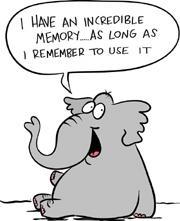
If you haven’t set your goals for the new year now is the time to put your health at the top and if you have already written them down great work!...But make sure your health is at the top.
As the rate of Alzheimer’s continue to grow in our country we continue to hear more people state that they just can’t seem to remember things. Many of them laugh it off and attribute it to old age but they are NOT old! We have had the pleasure of caring for a gentleman that was 95 years old and his memory was as sharp as a tack. I’m going to let you in on a something… Age has very little to do with your memory!
So what can we do to make sure that if we are lucky enough to make it to 95 that we won’t forget the great things we have had in our lives?
First off, I am going to start out with what most people have started in the last couple of days…Exercise! Research shows that exercising decreases functional deficits associated with cognitive aging (Snigdha, 2014). This does not have to be the marathon workouts that you may be dreading. Schedule 20 minutes in your day to get your heart rate up. Walk stairs, walk around the block, do jumping jacks, do anything that you will enjoy that gets your heart rate up. You may find that as you do this you will enjoy how you feel during your workout and you will begin to exercise a little longer.
Studies show that sleep plays a role in our ability to store memories. A study in 2014 found that children with faster sleep spindles showed improved cognitive abilities (Hoedlmoser, 2014). We recommend that you really try to get 7-8hrs of sleep every night because this is when your brain is able to go to work. Have you heard of brain plasticity? Brain plasticity is the brain’s ability to adapt and establish new neural connections. Alzheimer patients have been found to have impairments in brain plasticity in the frontal lobes of the brain that play a part in working memory (Keller, 2017). Lack of sleep causes a lack of the brain’s ability to adapt.
You shouldn’t be surprised that the next factor playing a role in our memory is our diet. Food is medicine folks or food is poison the choice is really yours.
Dietary lipids such as Omega-3 fatty acids have been found to increase one’s ability to store memories (Baym, 2014). You can find Omega-3s in fatty fish or quality fish oil supplements. Supplementing B vitamins has also been found to increase memory performance as well (Bryan, 2002). The right nutrients in your diet can be your medicine.
Now for the memory poison…. Sugar. I’ve talked about how sugar affects our immune system, cardiovascular system and how it has been linked to Alzheimer’s and dementia in past articles. Remember that Alzheimer’s is now being thought of as type 3 diabetes.
Making changes is overwhelming, uncomfortable and pretty tough to do on your own. We can help you get started not only with meal planning but also establishing a base line. Lab test can show us if you are absorbing the nutrients you eat, how you handle sugar and we can even take a look at DNA to take a closer look of how your body handles its environment. One of the best tools we have now to establish your brains baseline functional ability is BrainSpan. This test is a take home test that examines your fatty acid bio markers and combines that with an online test to measure your brain’s ability to pay attention, memorize, processing speed and cognitive flexibility.
Schedule today if you would like help storing those memories you plan on making in the new year!
Dr. Jeric Toney